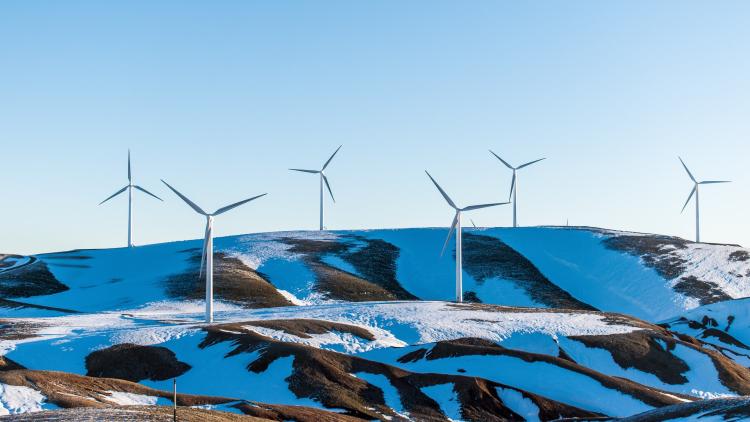Political Economy of Public Policy (30 credits)

Key information
- Credits
- 30
- Department
- Centre for Development, Environment and Policy
Module overview
Technical specialists (researchers, development workers, even policy advisors) often get frustrated that policies that are actually adopted and/or implemented deviate far from their technical recommendations. Glaring inequality may be reproduced for generations. It is rarely straightforward to talk about an undisputed ‘public interest’ that the state should be pursuing and indeed it can be quite misleading to talk about ‘the state’ as if it were a single, monolithic entity. Instead, multiple actors with competing or conflicting interests seek to influence the actions of a variety of state agencies to protect or further their own ends. The relative power of these groups is then important in determining outcomes.
This module explores the interactions between politics and policy, seeking to understand actual policies as the outcome of interaction between rational politicians and the people and groups who help them acquire and retain power. Moreover, policy-making both faces economic constraints and generates economic outcomes that affect future distributions of power within society. Thus, political economy explores the two-way interaction between economics and politics.
The module draws on theory from both developed and developing countries, but the application is more to the latter. As a result of studying this course, students will be equipped to understand how political processes and forces influence policy-making and to assess what needs to change if policy is more effectively to promote economic development, poverty reduction or sound environmental management in the area where they work.
Objectives and learning outcomes of the module
- apply the concept of rents to the analysis of state organisations, policy and performance
- explain how political and economic power interact to create and perpetuate inequality, and what might be done to challenge it
- examine the influence of bureaucracies and interest groups over policy in practice, in the light of alternative theoretical models and experience in different parts of the world
- explain both the economic and political challenges that may have to be overcome in order to achieve structural transformation of an agrarian-based economy
- assess the potential for competitive electoral politics to encourage more pro-poor policy-making in countries where the majority of the electorate is poor, and to identify interventions that could reinforce this
- critically assess the impacts of mineral resources and aid flows on governance and policy-making
- critically examine the interaction of domestic and international interests in the formulation of policy and in shaping development outomes.
Workload
Students are advised to dedicate 15 - 20 hours study time per week for this module.
Scope and syllabus
The module will comprise 15 units.
Units 1-6 will lay conceptual and theoretical foundations, drawing upon a diverse range of theories that have emerged to explain phenomena in both lower and higher income economies.
Units 7-12 examine the political economy of development processes, drawing on recent historical experience in Asia, Africa and Latin America.
Units 1-12 primarily examine domestic political economy dynamics, albeit with some departure from this in Units 8 and 12.
Units 13-15, therefore, explore the political economy of international policy making, covering both the policy making processes and the crafting of the institutions that shape the rules for these processes. These units invite students to challenge the "primacy of domestic politics" that is assumed in much of the remainder of the module.
- The State, Policy-Making and Political Economy
- Exclusive versus Inclusive Institutions
- Political Settlements
- Democratic Political Systems and their Rules
- Interest Groups
- Policy Processes
- The Structural Transformation
- Inequality Dynamics
- State Capacity
- Developmental States
- Democratisation
- Minerals and Aid
- International Policy Negotiations: Trade
- International Policy Negotiations: Climate Change
- Land Grabbing
Method of assessment
This module is assessed by:
- a 500-word commentary and critical discussion on a key reading, and assessment of the commentaries of two other students (10%)
- a 3000-word examined assignment (EA), with an element of online interaction and discussion, worth 40%
- a two-hour written examination worth 50%.
Since the EA is an element of the formal examination process, please note the following:
- The EA questions and submission date will be available on the Virtual Learning Environment (VLE).
- The EA is submitted by uploading it to the VLE.
- The EA is marked by the module tutor and students will receive a percentage mark and feedback.
- Answers submitted must be entirely the student’s own work and not a product of collaboration.
- Plagiarism is a breach of regulations. To ensure compliance with the specific University of London regulations, all students are advised to read the guidelines on referencing the work of other people. For more detailed information, see the FAQ on the VLE.
Suggested reading
Khan, M. & Jomo, K. (Eds.)(2000) Rents, Rent-Seeking and Economic Development: Theory and Evidence in Asia. Cambridge, Cambridge University Press
Acemoglu, D. & Robinson, A. (2013) Why Nations Fail: The Origins of Power, Prosperity and Poverty. London, Profile Books
North, D., Wallis, J. & Weingast, B. (2009) Violence and the rise of open-access orders. Journal of Democracy, 20 (1), 55–68
Drazen, A. (2008) Is there a different political economy for developing countries? Issues, perspectives and methodology. Journal of African Economies, 17 (AERC Supplement 1), i23–i31
Downs, A. (1957) An economic theory of political action in a democracy. Journal of Political Economy, 65 (Sections I–III), 135–150
Keeley, J., Scoones, I., 1999. Understanding Environmental Policy Processes: A Review (IDS Working Paper no.89). Institute of Development Studies, Brighton
Timmer P (2009) A World without Agriculture: The Structural Transformation in Historical Perspective. Washington DC, The AEI Press
Khan, M. (2005) Markets, states and democracy: patron–client networks and the case for democracy in developing countries. Democratization, 15 (5), 704–724
Collier, P. (2007) Aid to the rescue? In: The Bottom Billion. Oxford, Oxford University Press. pp. 99–123
Disclaimer
Important notice regarding changes to programmes and modules


